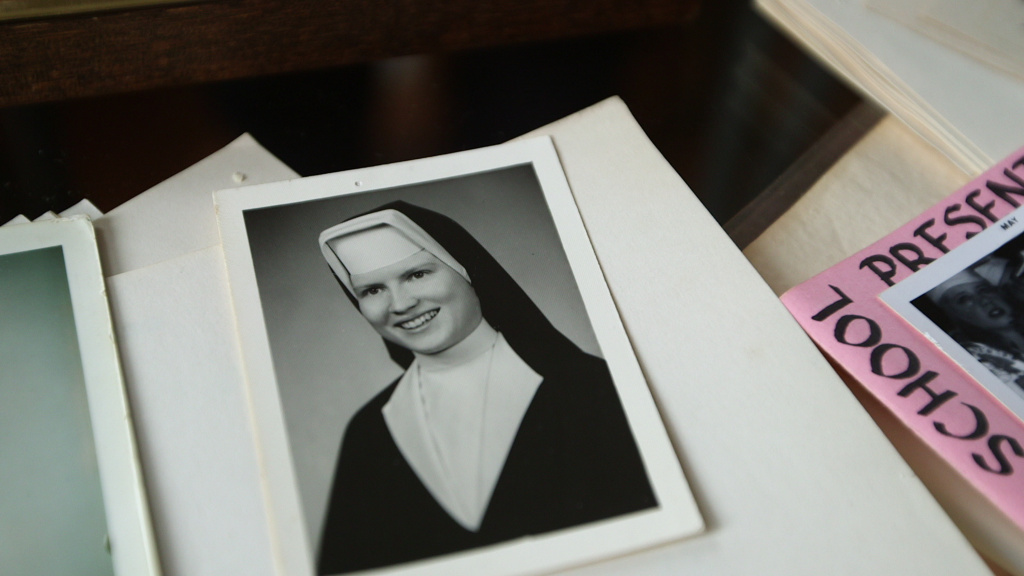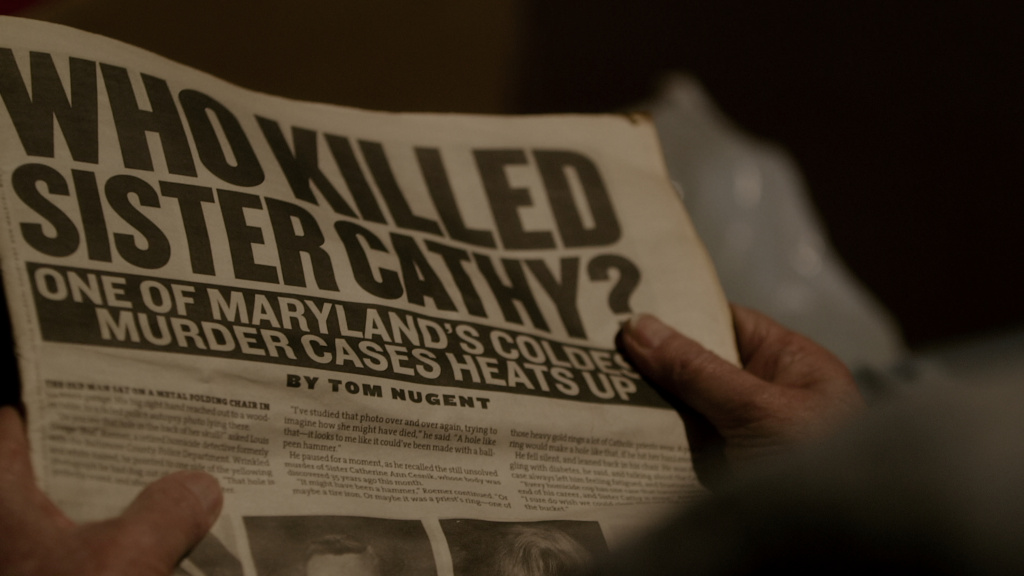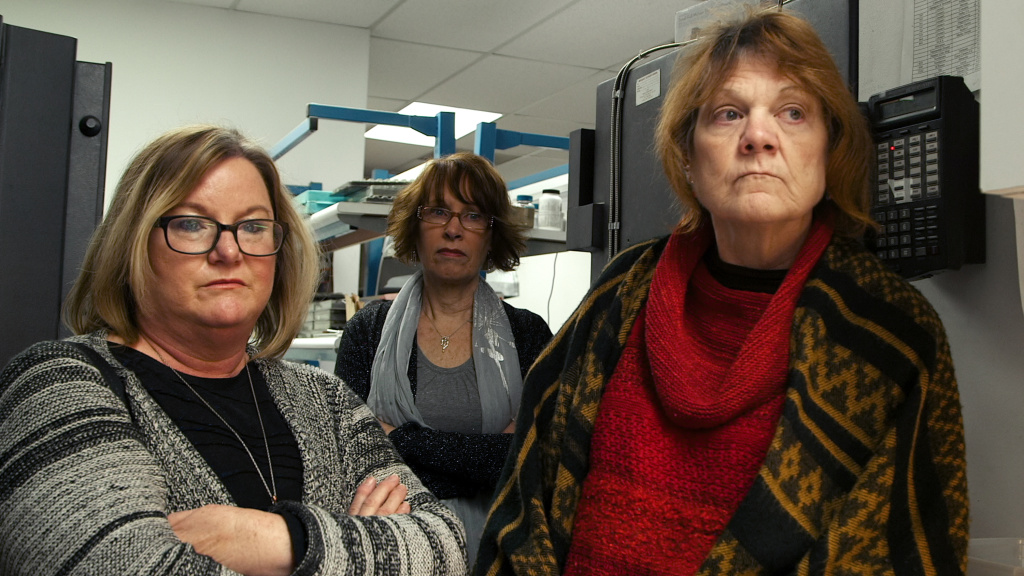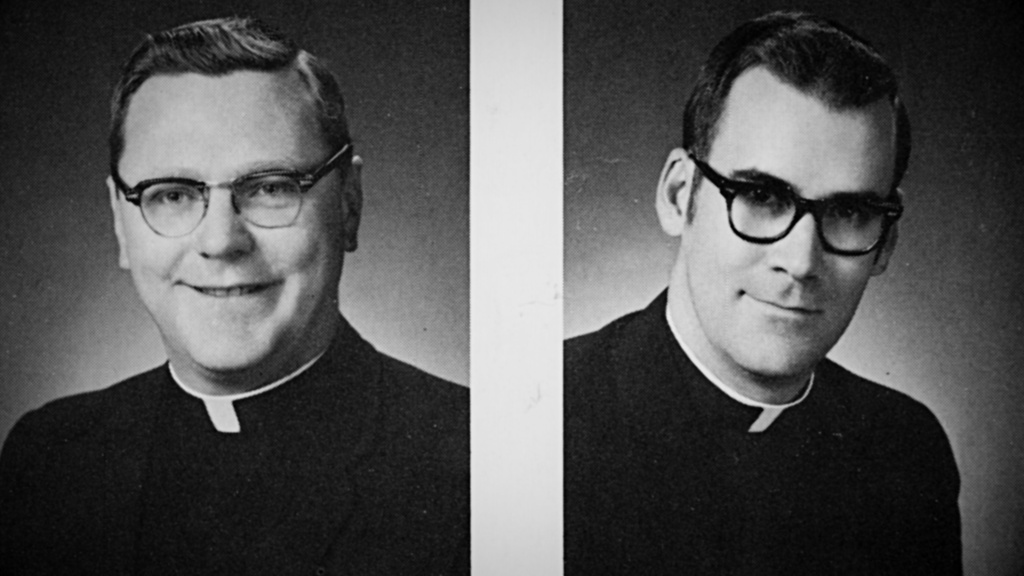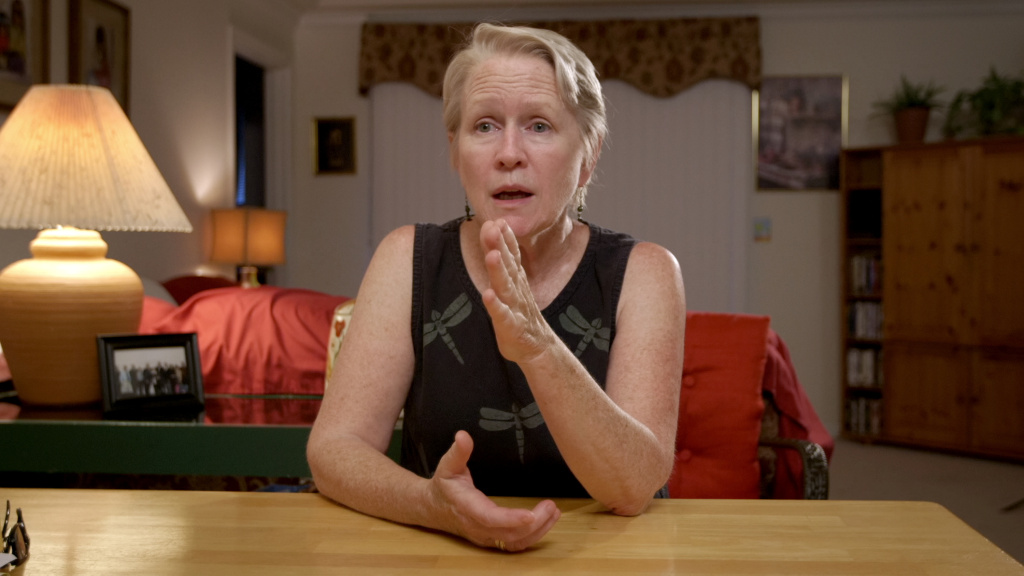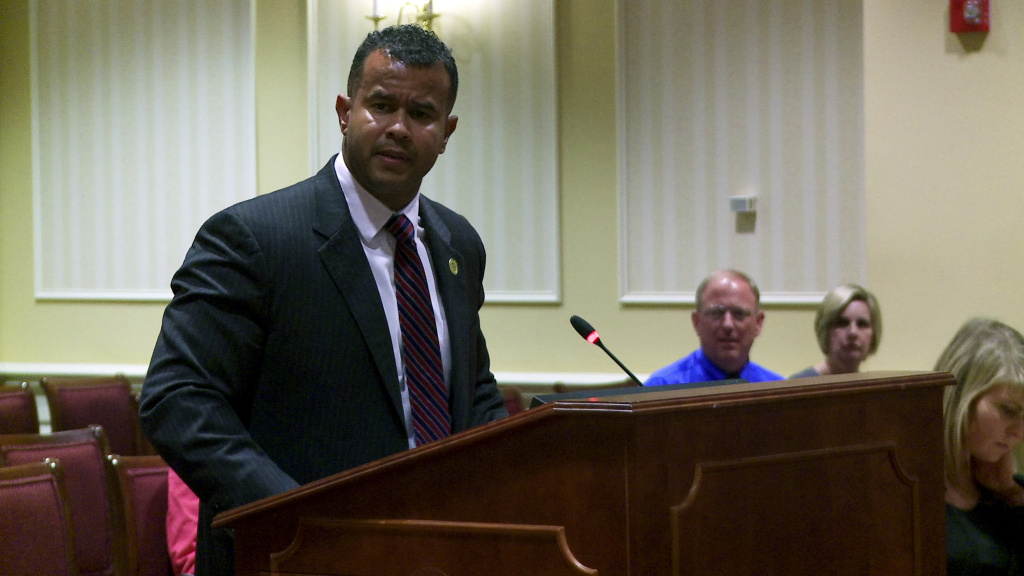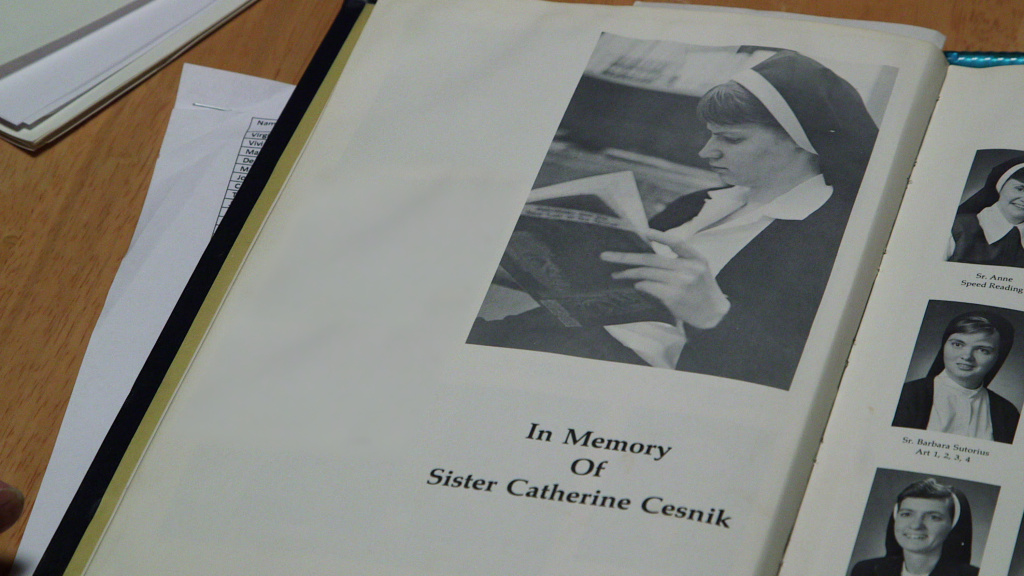Making the Netflix Crime Series "the Keepers" Was "Sickening" for Filmmaker Ryan White
By Michelle Lanz and John Horn
A year ahead of “Spotlight” winning the best picture Academy Award, and months ahead of the premiere of the Netflix series, “Making a Murderer,” filmmaker Ryan White was hard at work in Baltimore, looking into a decades-old murder. The 1969 killing of Sister Cathy Cesnik was the genesis of White's “The Keepers,” a new seven-part series that just dropped on Netflix. As White dug deeper into the nun’s still-unsolved murder over the course of three years, his documentary series shifted into a tale of pedophile priests and an apparently well-orchestrated coverup by local Roman Catholic leaders, all bound together by the heartbreaking accounts of several victims of sexual abuse. Unlike the professional Boston Globe journalists at the center of “Spotlight,” a lot of the investigative work in “The Keepers” was performed by ordinary citizens who were compelled to bring the killer or killers of Cathy Cesnik and another local woman to justice. Ryan White stopped by The Frame recently, and we began by discussing the two amateur investigators at the center of this story, Gemma Hoskins and Abbie Schaub. Interview highlights: On two of Sister Cathy's former students and their amateur investigation into her death: They described themselves as "retired grandma Nancy Drews" so it's not dismissive of me to say that. They both are completely different personalities — sort of an odd couple. They were both students of Sister Cathy's back in the '60s, had not seen each other since high school and were both compelled later in life to try to find answers. They joined up and began a Facebook group, which has become this grassroots movement in Baltimore. Gemma and Abbie have really led this communal movement over the last five years to find out the answer to what happened to their favorite teacher. They have shaken the branches of Baltimore in a way where survivors of this sexual abuse ring have been able to come out of the woodwork and find a sense of corroboration and believability. On his personal connection to the story: My aunt went to Archbishop Keough High School, which is the epicenter of "The Keepers," where the abuse was happening and where Sister Cathy was teaching. She was Sister Cathy's student. She dealt with the grief her whole life of her favorite teacher having gone missing and then being found dead. My aunt was also in the same class as "Jane Doe," who ends up being the central figure in this mystery. My aunt was friends with "Jane Doe," who was a woman named Jean Wehner, but did not know that Jean had this horrific past. She found out a few years ago ... and she connected me with Jean and I began traveling back and forth between Los Angeles and Baltimore and meeting with Jean and her deciding if this would be the next best step for her.
On how he decided where to focus the narrative: I didn't know how dark and deep and tragic it would go. But I knew that my inroad was Jean. I was compelled by Cathy's murder, but when I met Jean. My largest draw to "The Keepers" was this psychological horror film of what was buried inside of her and what came out when she was in her late 30s and early 40s. We knew that we were going to be constantly battling a true crime story that would be seen as a whodunnit, and then a much more human, hard-to-watch story of what Jean and others eventually went through. So many conversations in the editing room were around, how do we find that balance? How do we not lose people? Because this is too hard to look at and keep them coming back. But also force them to sit through it and bear witness to what these people went through. On who was Cathy Cesnik: She was beloved. She was ahead of her time. She was a writer, a play director and a feminist. Cathy Cesnik would have done incredible things with her life, I have no doubt about that. Unfortunately, as far as we found in our investigation, Cathy Cesnik is the only adult during this time period who tried to do something about it. She probably lost her life because of what a wonderful teacher and caretaker she was.
On the public reaction to the series: To be completely honest, I'm actually quite nauseated because not only was it nerve-racking for me as a filmmaker to have something that was going to be seen so widely, but what I've seen over the last couple days since it's been out is people flooding my inboxes with their own stories of abuse. I don't know why I didn't have the foresight to predict that, but that's what's happening right now. So I'm actually sick to my stomach because I have people from all over the world — because of the global nature of Netflix — saying, This happened to me and I never told anyone and would you be interested in documenting my story? So I'm figuring out how we handle that moving forward, knowing that I can't document all these stories. On Baltimore as a character in the series: Baltimore is a very Catholic city where the separation of church and state ... there's not a strong line of demarcation. There's too much power of the Catholic Church in Baltimore and Father Maskell is a key figure in that. Father Maskell was the chaplain for the Baltimore Police, for the state police and for the Air National Guard. He was well-connected to politicians, gynecologists, psychiatrists. So when you have a church in a city like Baltimore that exerts such control and where priests — especially during this time period in the late '60s and early '70s — were chaplains administering to these institutions, that's what can lead to these cover-ups. The documentary broadens in scope as it evolves into the modern day, but even in today's Baltimore and Maryland, we still see the power exerted by the Catholic Church to prevent victims from getting any legal recourse.
On the Archdiocese of Baltimore's tweet calling the series inaccurate: They were invited many times to participate in the documentary and chose not to. They called "The Keepers" fiction and they also said, We don't dispute the victims were abused, but we do dispute the premise and the conclusion of this documentary. [This] was baffling to me. I don't know why I was surprised because what I've witnessed for the last three years in following Jean Wehner's journey is about how they have continually let her down and harmed her. So I don't know why I was surprised when they had this reaction, but I don't think you can question the integrity of "The Keepers" or the conclusion without questioning the integrity of the survivors themselves. They can try to thread that needle, but what they're doing again is questioning the integrity of these people who are telling the truth. So I'll be damned if I'm not going to speak up about it. On the Wehner family's support of Jean: That to me has always been one of the most powerful parts of this overarching story. I find it so incredible. Nine siblings, a million cousins, children, a husband and nobody, not one, has ever said, Jean's a little unstable. Or, Jean's always been the crazy one in the family. They all rallied behind her, including her parents. This must have been horrific to know this happened to her and none has ever once doubted her memories.
On the Archdiocese's lawyer, Kevin Murphy, and his role in the story: Kevin Murphy works for a private firm. He doesn't work for the Catholic Church. But it appears that he spent the better part of his career defending the church against abuse victims. As you'll see in the documentary, we filmed the arguments around the statute of limitations in Maryland and whether they should be extended if victims of child sex abuse should have more time to come out and sue their abusers. Murphy, 25 years [later] ... was still at it in front of the Maryland state legislature arguing that they should not be extended. On C.T. Wilson and whether speaking out against the Church could be detrimental to one's career: Wilson is incredibly brave. He's a child sex abuse victim himself, but he's been up against the church the last few years and he's recognized the power of it. One interesting development is that since the documentary's been announced, the Catholic Church joined C.T. Wilson in extending the statute of limitations, so he was actually finally successful in April. It was after we'd already locked the documentary. He was successful in passing that bill unanimously. So every legislator from the [Maryland] House and the Senate all voted for that bill. So it absolutely proves what C.T. was saying all along: If the Catholic Church would just let it out of the committees, it will pass. And it did and that's a good thing. It might be certain people doing the right thing for the wrong reasons, or because of exposure, but the truth is that people in Maryland now have a longer statute of limitations and that's a good thing.
On gaining Jean Wehner's confidence and showing her the film: We showed it to her in a completely scrambled way. It wasn't in chronological order. We took out certain parts and showed them to her later. The very first part I showed Jean was the final 15 minutes of the series. She was sobbing for the first 14-and-a-half minutes of that, I'd say. Then the final 30 seconds was literally cheering, whooping and hollering. There's so much pain but also so much relief in feeling like her story is finally going to be heard. I look forward to what that woman does with her life. We keep calling it the next phase.
On whether he came to a conclusion about the case: I don't feel like I came to a conclusion. I, of course, have my own theories, but my own personal theory differs from my producer who was with me every day, differs from my editors who have seen every hour of footage, differs from Gemma and Abbie. It's such a convoluted story and unfortunately they are crimes atop crimes atop crimes, and so many criminals involved that there's a million permutations that could have been the actual machinations into why Sister Cathy was murdered. I think the more important question that we were getting at is why she was murdered. And was Father Maskell involved in that? I can tell you unequivocally that I believe Father Maskell engineered this murder. On his own background and relationship to the Church: My connection to this story was [that] I come from a big Catholic family in Baltimore. They were a friend of the Hargadon family, which was Jean's family. I was raised Catholic by my mom and had a very positive experience in the church and actually look back on my experience quite fondly. I had left in my 20s for my own reasons, but I reflected well back on the church. Making this [series] has been sickening. It's been sickening to watch, not only what was done to people that I was connected to in some way throughout my life, but didn't know happened to them. But I'm so disappointed in how the Archdiocese of Baltimore not only showed, I believe, a lack of transparency during the filmmaking process, but has also reacted to the release of this series. It's just been disheartening.
|
.
Any original material on these pages is copyright © BishopAccountability.org 2004. Reproduce freely with attribution.
